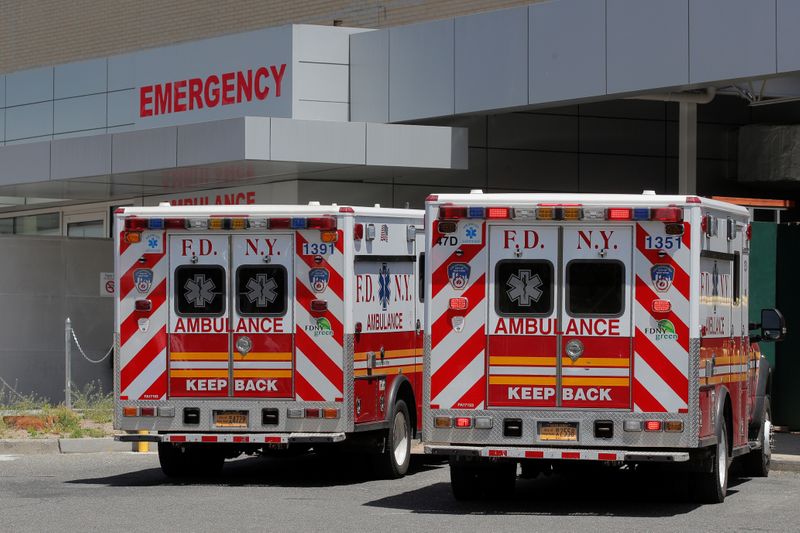(Reuters) – Fewer Americans were admitted to emergency departments with life-threatening conditions such as heart attacks during the initial months of the COVID-19 pandemic, U.S. researchers said on Monday.
The study suggests that patients may be delaying or avoiding seeking care because of fear of COVID-19, researchers from the U.S. Centers for Disease Control and Prevention said.
A CDC study in May showed that the number of deaths in New York City from causes other than COVID-19 rose by more than 5,000 people above the seasonal norm during the first two months of the pandemic
After the COVID-19 pandemic was declared a national emergency in the United States, public health authorities recommended that hospitals delay non-urgent medical procedures such as surgeries.
Visits to the emergency department because of heart attacks fell 23%, ten weeks after the pandemic was declared a national emergency, compared with ten weeks before the emergency declaration.
Similarly, emergency departments recorded a 20% decline in visits because of stroke, and 10% less visits for hyperglycemic crisis, which arises because of uncontrolled diabetes.
“A short-term decline of this magnitude in the incidence of these conditions is biologically implausible,” the researchers said in the CDC’s Morbidity and Mortality Weekly report.
The study authors said that health officials should make sure the public is aware that emergency departments are implementing infection control guidelines so that people seek emergency care when needed.
(Reporting by Manas Mishra in Bengaluru; Editing by Alistair Bell)

























